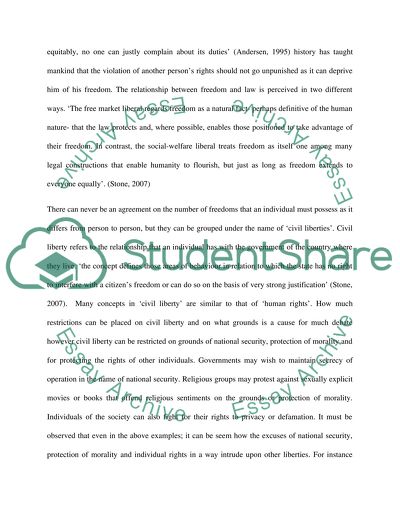Cite this document
(Do Laws Increase or Diminish Our Freedom Essay Example | Topics and Well Written Essays - 2000 words, n.d.)
Do Laws Increase or Diminish Our Freedom Essay Example | Topics and Well Written Essays - 2000 words. https://studentshare.org/law/1565879-do-laws-increase-or-diminish-our-freedom
Do Laws Increase or Diminish Our Freedom Essay Example | Topics and Well Written Essays - 2000 words. https://studentshare.org/law/1565879-do-laws-increase-or-diminish-our-freedom
(Do Laws Increase or Diminish Our Freedom Essay Example | Topics and Well Written Essays - 2000 Words)
Do Laws Increase or Diminish Our Freedom Essay Example | Topics and Well Written Essays - 2000 Words. https://studentshare.org/law/1565879-do-laws-increase-or-diminish-our-freedom.
Do Laws Increase or Diminish Our Freedom Essay Example | Topics and Well Written Essays - 2000 Words. https://studentshare.org/law/1565879-do-laws-increase-or-diminish-our-freedom.
“Do Laws Increase or Diminish Our Freedom Essay Example | Topics and Well Written Essays - 2000 Words”. https://studentshare.org/law/1565879-do-laws-increase-or-diminish-our-freedom.


